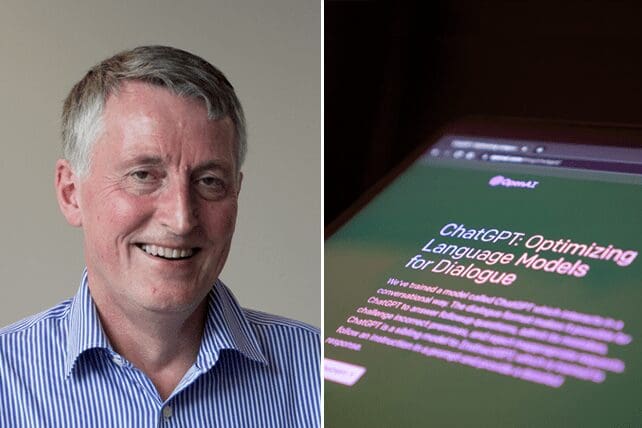But to be human is to experience the satisfaction of overcoming hurdles. We develop resilience and character as we overcome obstacles. Strangely, it seems that resistance, friction, cultivating discipline and endurance in the face of difficulties—these are precisely the routes by which we learn, grow, and flourish as embodied human beings.
So, yes, ChatGPT can help us effortlessly produce impressive new material. But in what ways is it going to help us flourish as human beings, and in what ways might it lead to our enfeeblement?
In what ways is ChatGPT similar or dissimilar from other AI technologies that have come before it? Does it raise new ethical questions, or simply bring existing questions to the forefront?
In 1950, the computer genius Alan Turing wrote a seminal research paper entitled “Computing Machinery and Intelligence.” The paper posed a fundamental question: “Can a machine think?” Turing’s answer was that if a machine could produce written text in response to human questioners that was indistinguishable from that of a real human, then the machine could be described as “intelligent.”
Although previous programs came close, it’s pretty clear that ChatGPT has aced the Turing Test. But the question remains: is the program genuinely intelligent or is it simply a brilliant but mindless simulation of intelligence?
At one level the ethical questions that are being raised are not new. They have played a central role in science fiction fantasies for decades. The US sci-fi television series “Westworld” is set in an amusement theme park populated by highly realistic humanoid robots. In an early episode, a human visitor to the park is greeted by a beautiful young woman who asks if she can be of assistance. He stares at her and asks, “Are you one of them or are you real?” She replies, “If you can’t tell, does it matter?”
What used to be sci-fi fantasy is now becoming reality. So this is a question we are going to face repeatedly over the coming months and years. If you can’t tell the difference between wonderful, original, even profound, creations manufactured by mindless machines simulating humans and those invented by genuine loving, thinking, caring human beings, does it really matter?
Most people reading these words will have deep Christian intuitions that it does indeed matter, but there is an urgent need for thoughtful Christian debate and discussion about how this technology is impacting our lives.
How does AI technology like ChatGPT, which gives the appearance of humanity, affect how we view ourselves as created in the image of God?
Human beings have always tried to understand themselves by comparison with the most sophisticated technology of the age. So it’s not surprising that it has become commonplace to suggest that human beings are really “computers made out of flesh.”
The idea seems to have become a distorting lens through which many modern people understand their own humanity. We find this in the increasing use of language such as being “hard-wired,” “suffering from information overload,” or “programmed for failure.”
Although each of us is inextricably bound up with our bodies and their biological machinery, we are so much more than machinery. The advent of ChatGPT is an opportunity to highlight the differences between impersonal human-constructed mechanisms and unique human persons, embodied in flesh and created as a unique reflection of the invisible God.
Each one of us is known and loved by God and given the dignity of freedom and accountability for our choices and actions. Yes, the technology is mind-boggling and extraordinary, but human beings are even more wonderful.
RELATED: ERLC Issues Urgent Call to Biden Regarding Religious Liberty and Artificial Intelligence
And, yes, I guarantee that the responses in this article were created entirely by a human being.

